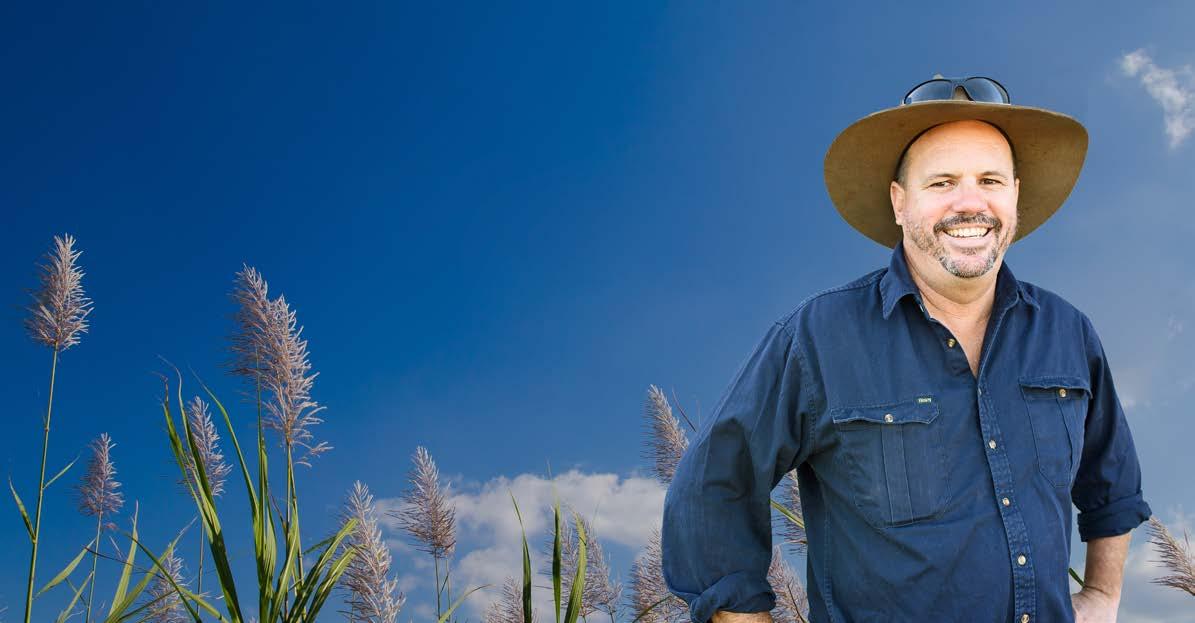
3 minute read
FROM THE CHAIR
By Owen Menkens, Chairman, CANEGROWERS
STL MUST EXPLAIN DECISION TO DUMP QSL
Advertisement
There has been a lot of discussion in the media and on headlands recently about the decision by Sugar Terminals Limited (STL) to insource terminal operations and therefore terminate its long-standing and successful operations agreement with Queensland Sugar Limited (QSL). This decision was made without consulting growers, despite growers having originally covered two-thirds of the cost of building these industry assets.
This was done under a regulated environment whereby the Queensland Government owned the sugar in the terminals and, with industry, managed the sugar terminal assets. Once deregulation started, QSL and STL were formed. STL was a listed company with shares allocated on the basis of the tonnage supplied by growers and millers over a period. QSL was formed to work as a not-for-profit, industryowned company that marketed the sugar and managed the terminals.
The relationship between the two was essentially a lease arrangement whereby STL’s main role was to monitor QSL whilst maintaining the assets and giving a return to its shareholders.
This was in a period when mills were co-ops or Australian owned companies, and the idea of our industry was to maximise the brand of Queensland-produced sugar on the world market.
Over the years, mill ownership has changed and their marketing priorities along with them. The share ownership of STL has also changed, with many growers, millers and QSL taking out large shareholdings.
Last month, STL chose to cancel the lease agreement it had with QSL since 2017 and create a new operating agreement. In the letter to shareholders, dated 3 February, STL says it always contemplated the insourcing of operations. No STL representatives have ever said this to industry or me as chairman of CANEGROWERS. In fact, on many occasions STL representatives have explicitly said they had no intention of taking over terminal operations.
The other issue is that in its press release STL failed to mention that they have a three-year contract with QSL to continue running the terminals.
The intimation of the release is that they were taking over operations immediately. This deception calls into question STL’s ability to work on behalf of the industry and the growers who pay two-thirds of their revenue.
As growers we are price takers, with costs being able to be passed through to us from different people in the supply chain. Therefore, it is imperative that transparency over costs continues.
QSL manages the terminals on behalf of industry in an efficient and world class manner. This gives us, as an industry, a genuine competitive advantage in the world market.
STL mentions QSL’s conflicts of interest in their statements but doesn’t provide any evidence of this. STL will meet with the CANEGROWERS Policy Council this month to explain their decision as well as provide evidence of how they could do a better job than an industry-owned, not-for-profit company. These assets need to be managed in the best interests of industry, with long term low operating costs. STL needs to explain their forward operating strategy and how this will work for growers and not simply extract profits for shareholders.
CANEGROWERS will work tirelessly to keep pressure on STL, QSL and all the other marketers to provide a transparent supply chain system.
We will make sure that we continue to enjoy a world class sugar storage and handling system. We should work together as an industry to maximise our sugar value for now and into the future.








